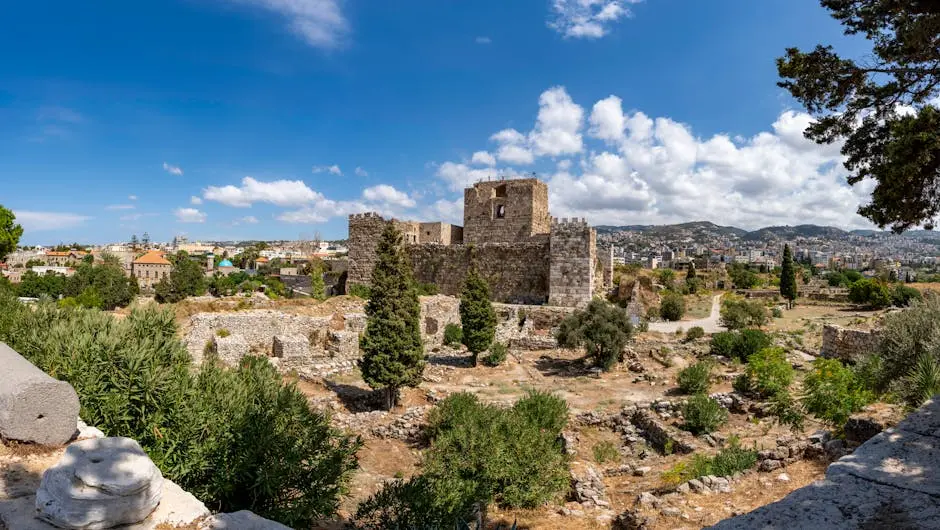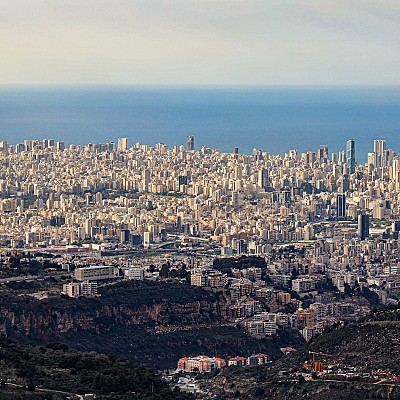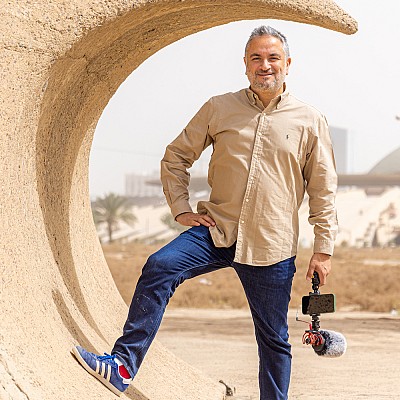Lebanon is a treasure trove of cultural experiences waiting to be discovered. Beyond its famous landmarks and bustling cities lies a rich tapestry of traditions, local artisans, and authentic gastronomic delights that tell the story of its diverse heritage. In this blog, we'll delve into some of the hidden gems that offer a glimpse into the soul of Lebanon, showcasing the cultural experiences that make this country unique.
The Tapestry of Lebanese Traditions
Lebanon's cultural experiences are steeped in an array of traditions that span centuries. Every region has its own customs, rituals, and folklore that contribute to the country's vibrant identity. The beauty of these traditions lies in their diversity, offering insights into the lives of the Lebanese people. For instance, the annual celebration of Easter showcases spectacular processions, where the whole community comes together to participate. This event not only highlights the religious significance but also serves as a reminder of the enduring spirit of unity among the people.
Community gatherings play a crucial role in preserving Lebanese heritage. From wedding ceremonies to religious festivals, these gatherings foster a sense of belonging and shared identity. One cannot overlook the significance of the Mahraganat, where music, dance, and vibrant costumes transform the streets into lively expressions of culture. These moments are encapsulated by generations passing down stories, enriching the cultural tapestry of Lebanon in unforgettable ways.
Additionally, traditional storytelling, known as Hekayat, remains an integral part of daily life. This oral tradition serves as a bridge connecting the past with the present. Through engaging narratives, audiences can learn about the struggles and triumphs of their ancestors. It is fascinating how each story reflects the resilience of the Lebanese spirit, enthralling listeners and perpetuating a sense of collective memory.
Uncovering Hidden Markets and Artisans
To truly appreciate Lebanese culture, one must explore its local markets filled with artisans showcasing their exceptional crafts. Strolling through the narrow lanes of Souk El Tayeb, you’ll encounter vendors selling handmade textiles and aromatic spices that entice the senses. Each product tells a story of its maker, often passed down through generations. This connection to craftsmanship is not only vital for the economy but also for the cultural legacy it preserves.
An intimate experience awaits as you visit the Beirut Souks, where you’ll discover hidden gems amongst the contemporary stores. Here, local artists and artisans present their work, from intricate pottery to beautifully crafted jewelry. Engaging with these talented individuals enhances the appreciation for their work. You’ll find that many artisans are eager to share the historical significance behind their creations, making every purchase much more than just a transaction—it's a piece of history.
Furthermore, exploring artisan workshops in quaint villages is a must! Whether it's learning how to weave traditional rugs or watching a potter shape clay, these experiences create a personal connection to Lebanon’s artistic heritage. Visitors are often welcomed as part of the family, fostering cultural exchanges that are incredibly enriching. Such interactions lay the foundation for deeper appreciation of the cultural experiences that Lebanon has to offer.
A Culinary Journey Through Lebanon's Hidden Gems
Lebanese cuisine is a cultural experience in itself, bursting with flavors that tantalize the taste buds and tell the narrative of the nation. Traditional dishes like Tabbouleh and Hummus are just the beginning of a culinary adventure. As you venture off the beaten path, local eateries in hidden alleyways serve up authentic meals prepared with age-old recipes that could be centuries old. This journey through flavors unveils the connection between food and cultural heritage, as each dish carries the essence of Lebanon's rich history.
Visiting a Fattoush bar or a family-owned restaurant allows you to savor Lebanese hospitality. Sharing a meal is not merely about nourishing the body—it's about forming bonds. The joy of feasting on colorful spreads of Mezze, accompanied by laughter and conversation, creates moments that linger long after the meal is over. Food becomes a medium through which stories are exchanged and traditions are upheld.
Specialties like Kibbeh and Mouhallabieh take center stage in regional culinary festivals, where locals come together to celebrate their gastronomic heritage. Culinary classes in these regions enhance the experience, providing insights into ingredient selection and cooking techniques that have been honed over generations. Participants leave not only with new recipes but with a deeper understanding of Lebanese identity through its food.
Participating in Local Festivals and Celebrations
Lebanon is renowned for its vibrant festivals that showcase the heart and soul of its culture. The annual Beirut International Festival draws people from all walks of life, offering a kaleidoscope of music, dance, and art. Attending such a festival is a cultural experience unlike any other, where one can immerse themselves in the creative expressions of both traditional and contemporary Lebanese artists.
More intimate celebrations, such as the Beqaa Wine Festival, highlight Lebanon’s rich agricultural heritage. Here, visitors have the opportunity to taste exquisite wines produced by local vineyards while enjoying live music and delicious food. The communal atmosphere fosters connections among attendees, who share a love for Lebanon's rich offerings. These moments create lifelong memories that resonate with the stories behind each grape and each note played.
Participation in local religious holidays, such as Eid al-Fitr, offers another glimpse into Lebanese culture. Observing customs like family gatherings and traditional feasts demonstrates the importance of unity and community within Lebanese society. Every celebration, whether joyous or solemn, encapsulates the essence of Lebanese identity, reminding us of how culture is woven together through shared experiences.
Exploring the Significance of Family and Community
In Lebanon, family is at the center of cultural experiences and plays a vital role in shaping identity. Lebanese families often gather to celebrate important milestones, passing down stories through generations. This emphasis on family not only strengthens bonds but ensures that traditions are upheld. The spirit of togetherness is palpable in every gathering, reflecting a deep-seated cultural value that follows the Lebanese wherever they go.
Community is equally significant in Lebanese culture, with many social events designed to foster connections among neighbors and friends. Events like the Ma’srouj Festival invite everyone to participate in spirited activities, drawing people closer together. These communal experiences are cherished, likened to a sense of belonging that transcends individual differences. They reinforce the notion that Lebanese culture is not just about personal identity but collective stories and experiences.
As you engage with local families, you will find that hospitality is a cherished virtue. Visitors often experience open doors and warm welcomes, allowing them to immerse themselves in the cozy ambiance of Lebanese homes. Sharing a meal is an invitation into a world rich with narratives, mirroring the interconnectedness of tradition and modernity in Lebanese life.
Art and Music: The Heartbeat of Lebanese Culture
Art and music intertwine seamlessly in Lebanon, reflecting the country's dynamic cultural tapestry. The rhythm of the Dabke, a traditional folk dance, resonates in hearts as much as it does in feet, illustrating the passion embedded in Lebanese heritage. Each step and every note tell stories of past struggles and victories, resonating with both locals and visitors alike. Festivals celebrating music—from classical to contemporary—bring national pride and highlight the talent of Lebanese artists.
Visual arts also play a crucial role in conveying Lebanon's vibrant culture. Artists like Mounir Nasr and Hassan Hajjaj use their work to express social and political narratives, providing locals and tourists insight into contemporary issues. Art exhibitions and galleries across cities showcase this creativity, encouraging meaningful conversations about identity, tradition, and change. Engaging with these artists and their works fosters a deeper understanding of Lebanon beyond its physical landscapes.
Moreover, music remains an avenue for cultural storytelling. The haunting melodies of Oud resonate through the streets, echoing tales of love and hope. Concerts and music festivals often draw crowds, further highlighting the integral role of music in community life. This shared love for creating and enjoying art showcases the beauty of Lebanese culture as an ever-evolving tapestry, inviting everyone to be part of the continual narrative.
Embracing the Richness of Lebanese Culture
As we venture through Lebanon's hidden cultural experiences, it becomes clear that the true essence of this nation is found not just in its sights, but in its people and their stories. From local rituals to artisan craftsmanship, every encounter adds depth to our understanding of Lebanon. So, whether you’re planning your visit or simply exploring from afar, embrace the richness of Lebanon's culture—it promises unforgettable memories.







































